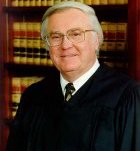7/5/2011
California Court Softens Ban on Testimony Questioning Breathalyzer AccuracyCalifornia Court of Appeal allows challenge to breath testing based on relation of lung air to blood alcohol.

Since 1994, the California courts have banned defendants from using scientific evidence to challenge certain charges for driving under the influence of alcohol (DUI). To foil defense attorneys who had become increasingly successful with juries, the state created a "per se" DUI charge that made it a crime to have 0.08 reading on a breathalyzer machine regardless of whether an individual was actually drunk or had a 0.08 percent blood alcohol content (BAC) level. Because of physiological variability among individuals, some people with the same blood alcohol level might read higher or lower on the breath machine. Challenges based on these differences are known as "partition ratio" arguments. The California Court of Appeal on Friday loosened what had become effectively a ban on scientific criticism of breathalyzer reliability.
"Reliability of breath test results has repeatedly been challenged on the theory that partition ratio variability, from person to person, or relating to one person at different times, should be taken into greater account," Justice Richard D. Huffman explained. "The purpose of the per se DUI definition is to avoid such arguments, by setting legal limits on permissible blood alcohol and defining how that limit is to be measured in a breath sample."
On December 22, 2009, California Highway Patrol Sergeant Richard W. Berg arrested Terry Vangelder on suspicion of DUI after stopping him for speeding on Highway 163. A handheld breath testing machine recorded 0.095 and .086 BAC readings. Taken to the police station, a full breathalyzer machine produced 0.08 BAC readings -- just over the legal limit. Vangelder performed well on the field sobriety test, was not weaving and pulled over immediately when the police light was activated.
Vangelder's attorney argued that the breathalyzer machine depends on an assumption that such devices only measure alveolar, or deep lung breath, air. He had scientific witnesses available to show this assumption is not always justified, rendering breath alcohol readings inaccurate. At trial, a judge ruled that this witness was forbidden from speaking of the matter. A jury could not reach a verdict on generic DUI charges, but it found Vangelder guilty of per se DUI because the breathalyzer read 0.08.
"The trial court seemed to assume that the .08 breath test result could not be rebutted in any fashion, for either of these DUI charges," Huffman wrote for the three-judge appellate panel. "We disagree with the people's reply argument that the court was merely commenting, in that respect, that the definition of the per se DUI crime was not rebuttable. Instead, the evidentiary support for both counts was at issue, and the .08 blood alcohol reading had to be fully supported either by the blood or the breath test results, and it is not clear on this record that it was."
The defense expert witness attempted to testify that the deep lung breath that is being measured does not properly reflect blood-alcohol levels, because it can pick up other alcohol from various parts of the physiology, causing a high reading. Breathing pattern, body temperature and other factors could affect this reading. The appellate judges saw no legal reason to exclude this testimony.
"Although breath test results are admissible if a reliable foundation for them is laid, we think that such competent evidence of their potential inaccuracy, because of physical variabilities leading to poor data in sampling, should have been allowed to be considered, as going to the weight to be accorded the testing results. In light of the authorities described above, we conclude that the trial court was mistaken in stating that this expert testimony was completely irrelevant as an attempt to rebut the breath test result, for either the per se or generic DUI counts."
The court upheld Vangelder's speeding conviction, but reversed his per se DUI conviction and remanded for further proceedings.
A copy of the decision is available in a 80k PDF file at the source link below.


